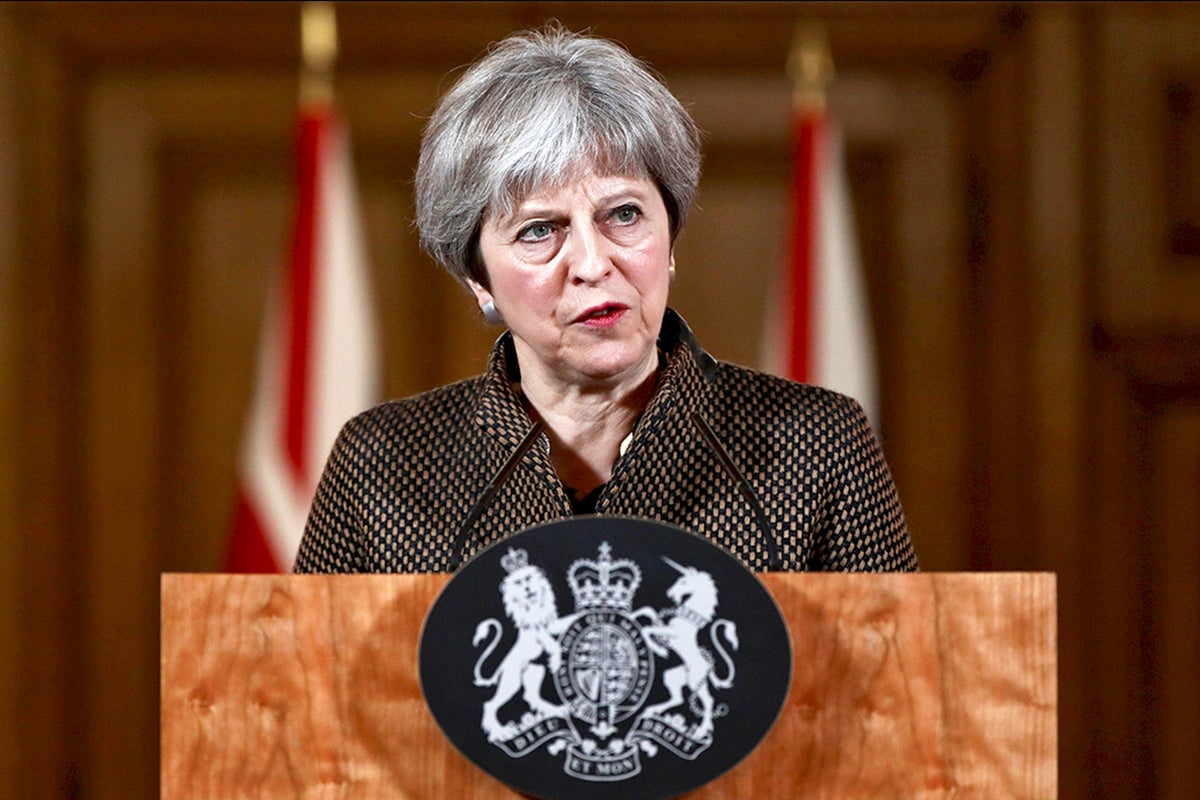There was a case for Syria strikes, but parliament should have heard it and voted
It is right in principle that when that red line, as Barack Obama called it, is crossed there should be consequences. It may be, however, that there are more powerful arguments for restraint

Your support helps us to tell the story
From reproductive rights to climate change to Big Tech, The Independent is on the ground when the story is developing. Whether it's investigating the financials of Elon Musk's pro-Trump PAC or producing our latest documentary, 'The A Word', which shines a light on the American women fighting for reproductive rights, we know how important it is to parse out the facts from the messaging.
At such a critical moment in US history, we need reporters on the ground. Your donation allows us to keep sending journalists to speak to both sides of the story.
The Independent is trusted by Americans across the entire political spectrum. And unlike many other quality news outlets, we choose not to lock Americans out of our reporting and analysis with paywalls. We believe quality journalism should be available to everyone, paid for by those who can afford it.
Your support makes all the difference.No one could accuse The Independent of being gung-ho for military solutions to complex problems. We opposed the invasion of Iraq a decade and a half ago and have been critical of western intervention in Libya since. However, there is an argument for punitive air strikes against the Assad regime in Syria that ought to be heard.
When Theresa May says that the international community must “not stand by and tolerate the use of chemical weapons”, she cannot be dismissed as a warmonger or an American poodle. She is entitled to be taken seriously when she says that “we cannot allow the use of chemical weapons to become normalised – either within Syria, on the streets of the UK or elsewhere”.
It is right in principle that when that red line, as Barack Obama called it, is crossed there should be consequences. It may be, however, that there are more powerful arguments for restraint.
One of them is not that made by Jeremy Corbyn, when he describes last night’s US, French and British air strikes as of “questionable legality”. That is a curious phrase, when the one thing that is unquestionably illegal is the use of chemical weapons, banned by the Chemical Weapons Convention.
There is plainly a moral case for enforcing that ban, and if the United Nations will not do it – as it cannot while Russia has a veto on its Security Council – then it must fall to the world’s leading democracies to do so instead. The attorney general has dressed this up in his advice to the government, saying “an exceptional measure on grounds of overwhelming humanitarian necessity” is “legally justifiable”.
The larger argument, though, is whether military action is wise. That is what parliament could have debated.
Patrick Cockburn, our experienced reporter and commentator on the Middle East, argues that the only realistic rulers of Syria are Bashar al-Assad or the various al-Qaeda clones, such as Isis and al-Nusra. Any serious attempt to weaken the Syrian leader, therefore, risks prolonging the agonies of the Syrian people – although he writes today that these strikes were more of a “gesture” than an attempt to damage Mr Assad’s military machine.
It may be, then, that the Western response was calibrated to minimise the risk of a Russian reaction. But we cannot know if such a reaction will come at any point in the future. If it does, a cyber-attack may not be easily identifiable. We have no idea what effect the chilling of the new cold war might have on Russian gas supplies to Europe, or on attempts to encourage Iran to respect international norms.
It is worth pointing out, too, that the punishment strikes launched unilaterally by Donald Trump a year ago failed to deter Mr Assad from using chemical weapons – although that would not necessarily mean a further attempt is futile.
But it is also possible that diplomatic efforts would have been less risky and that they could have been more productive. In any case, there is a good argument that these should have happened first.
What should be clear is that the question of how to respond to the horrors of Ghouta, Khan Shaykhun and now Douma is a complex one and that we should be suspicious of glib answers.
All the more reason, then, for the House of Commons to meet and debate these difficult questions. There was time for parliament to be recalled this week. As John Rentoul argues, the only reason the prime minister refused to do so was that she feared she might lose a vote to approve military action. The BBC even reported that Theresa May urged President Trump to launch the strikes before parliament reconvened on Monday, to avoid the prospect of such a vote. When Mr Corbyn accused Ms May of following Mr Trump’s timetable, it could be that the truth was the other way round.
This is a democratic outrage. If parliament – certainly reflecting public opinion on this occasion – would not support air strikes, then British forces should not have taken part in them, no matter how compelling the arguments may seem to the prime minister.
We respect the view that the use of chemical weapons should be punished, but the democratic principle must come first.
Join our commenting forum
Join thought-provoking conversations, follow other Independent readers and see their replies
Comments